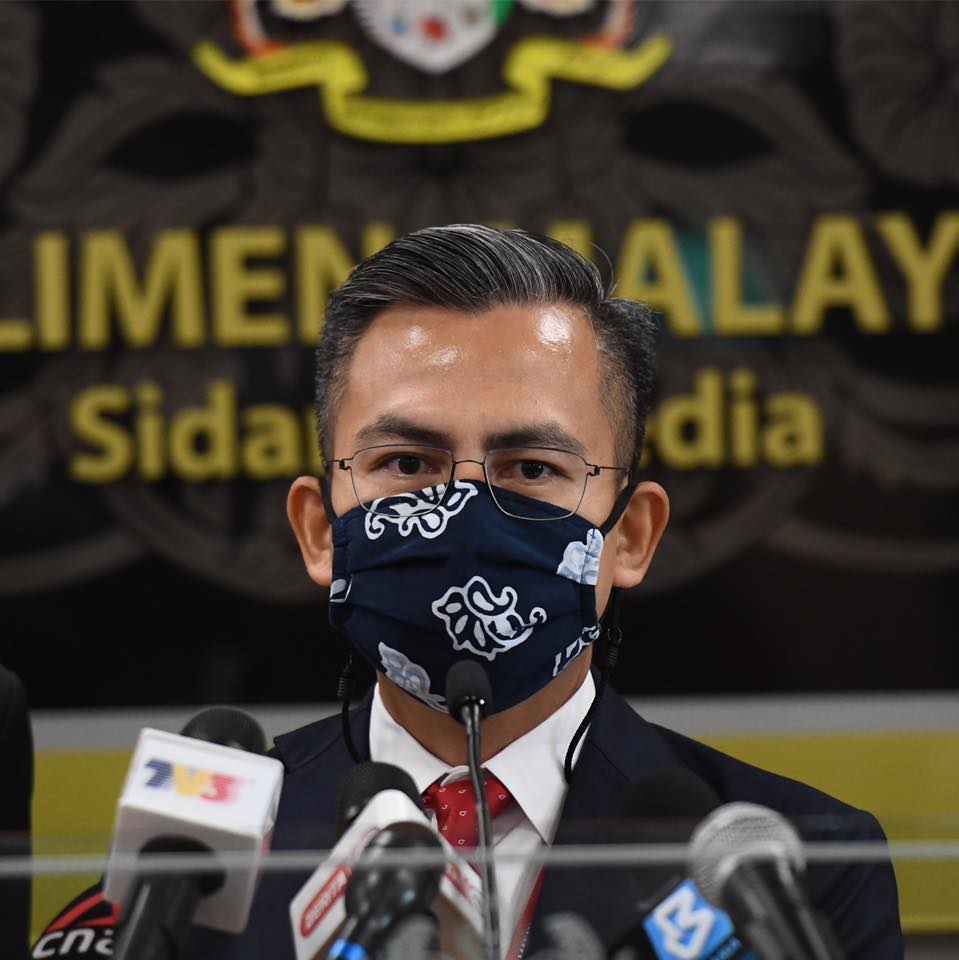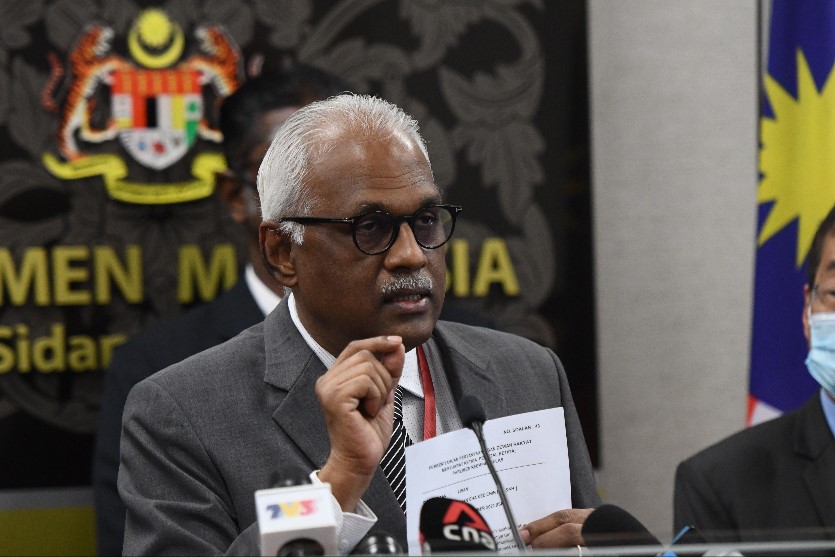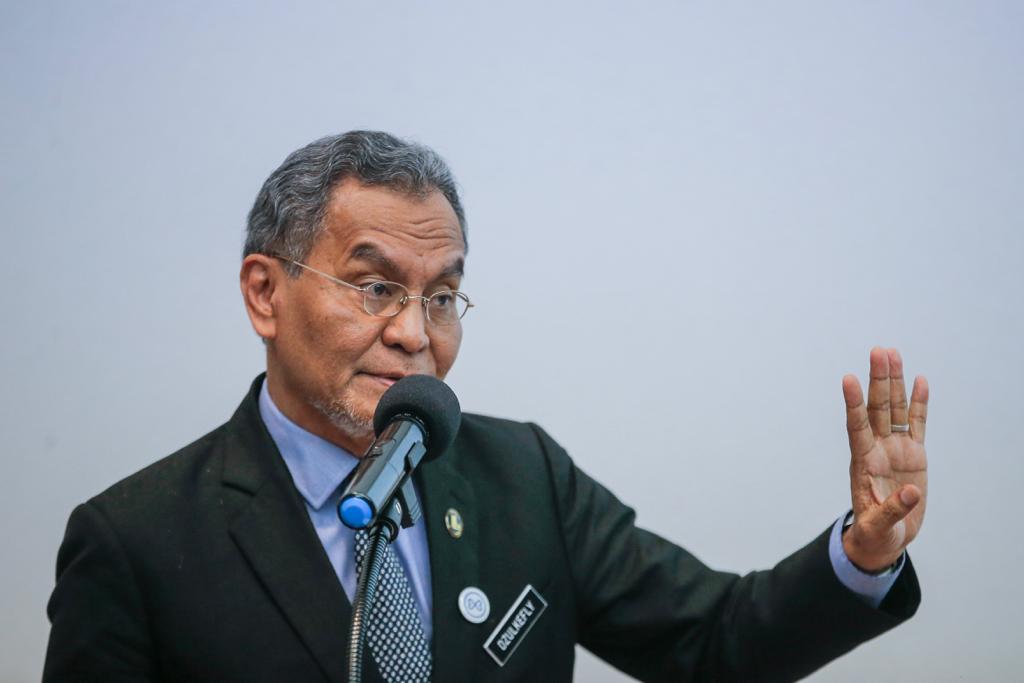KUALA LUMPUR, Dec 15 – Opposition lawmakers have expressed concerns about double standards in the law enforcement of Covid rules with much more severe penalties in a proposed revised law.
Yesterday, Deputy Health Minister Dr Noor Azmi Ghazali tabled the 2021 amendment to the Prevention and Control of Infectious Diseases Act 1988 (Act 342) in the Dewan Rakyat for second reading; the government is expected to attempt to pass the amendment Bill tomorrow.
The amendment Bill raises compounds of offences to a maximum RM10,000 for individuals and RM1 million for corporate bodies. General penalties upon conviction are revised upwards to not more than seven years’ imprisonment, a maximum RM100,000 fine, or both for individuals, as well as a maximum RM2 million fine for corporate bodies.
The maximum seven-year jail sentence for individuals convicted of breaching Act 342 is equivalent to punishments for violent crimes like criminal assault and is even harsher than the maximum two-year imprisonment for causing death by negligence.
Opposition Leader Anwar Ibrahim yesterday said in a statement that the Opposition bench will not support the Act 342 amendment Bill in its current form, citing deep concerns from both MPs and the public about the possibility of abuse of power, corruption, and double standards in enforcement with the proposed “excessive” fines and compounds. He added that he has informed the Opposition’s stand to Prime Minister Ismail Sabri Yaakob.

Lembah Pantai MP Fahmi Fadzil said he is worried about double standards in law enforcement and is unsure if higher penalties alone will prevent people or companies from flouting standard operating procedures (SOPs) and creating Covid-19 clusters.
“For example, if factory A is found to have flouted SOPs multiple times, would having to pay RM1 million each time really lead to factory A enhancing their SOP compliance?”
“I am also very worried about ‘antara dua darjat’ (double standards), where we have seen too many times ordinary Malaysians face the brunt of the law yet the government itself is both immune and tone-deaf when it comes to dealing with their own transgressions – for example, the very recent 100 Hari Aspirasi Keluarga Malaysia event,” he told CodeBlue when contacted.
Khairy previously said there will be “very stringent” guidelines to prevent abuse of power by enforcers such as issuing excessive compounds.
Fahmi said these so-called guidelines have yet to be revealed and need to be discussed before the law is passed. “Abuse of power, corruption, double standards are all possible when these “guidelines” fail, and this will ultimately make the people trust the government less,” he said.
When asked if he would vote for or against the Bill, Fahmi said he wanted to read the full Bill first.
Former health minister Dzulkefly Ahmad said he is always in favour of “providing the carrot than the stick”, and that the public health mantra now should be to incentivise, not penalise, as many have already suffered from economic losses and collapses.
“If you keep blaming and beating people down, one day they will rise up and beat you down, especially when leaders themselves are not compliant and offer good exemplary embodiments of SOPs. Open non-compliant episodes of leaders [have] bred contempt and distrust of SOPs,” he said.
The Kuala Selangor MP also questioned the basis for compounds, saying that while the government may want to be as punitive as it could for having lost over 30,000 lives in the past two years to Covid-19, it has to also accurately identify the causes for Covid-19 outbreaks other than non-compliance.
“Was it also not attributed to the weakest link of contact tracing in the FTTIS (find, test, trace, isolate and support) done manually or even the arguably late arrival of vaccines and the many thousands of avoidable or preventable deaths.
“So, where do you draw the limit or how do you get to judge what is commensurate or fair? Is RM1 million acceptable or hefty for companies or government agencies? Is RM10,000 also appropriate for individuals?” he said.
Additionally, Dzulkefly said stringent guidelines in enforcing the proposed punishment are still open for interpretation. “Rather than focus on those guidelines, why not ensure stringent guidelines for basic testing, quarantine, and close contact classification be focused on first.
“Even today, many states have different quarantine protocols two years down this pandemic. So, it is absolutely going to be a cataclysmic failure – as we cannot even get things that need to be addressed right, let alone introduce new guidelines,” he said.

Petaling Jaya MP Maria Chin Abdullah said the compound will have a “killer effect” on individuals and small and medium enterprises (SMEs) if they are given the maximum RM10,000 or RM1 million compound respectively.
“Yes, I agree stringent efforts need to be done but not by such ridiculous increment,” she said, adding that Health Minister Khairy Jamaluddin himself admitted to potential abuse of the law.
Maria further described the amendment Bill as a “unilateral decision” by the Ministry of Health (MOH) meant to deter any protests or opposition to the Bill. “[The MOH is] arrogantly rushing the amendments without going through the democratic process. Select Committees (SC) were set up last week and here the Minister totally bypass the SC. So, why set them up?” she said.

Klang MP Charles Santiago said plans to grant enforcement powers to other non-health ministries and agencies, such as the Ministry of Human Resources, the Ministry of International Trade and Industry, and local council authorities, will create a “high level of arbitrariness” and opportunities for abuse.
“Of course, the minister says we will be careful and the guidelines are there but on the ground, there’s no guideline – it’s just power play. In a society where corruption is very high, these things will happen.
“My only concern is if on the ground there is a guy who wants to make money, it’s very easy to make money. He just has to go and find a shop… before this, it was just the health department. Now, the local councils can also do it. So, you’re expanding the possibility of corruption and abuse of power,” Charles said.
“Although in principle you can support this, very stringent rules and fines to stop the big companies, especially. At the same time, if it applies to small companies, they will close shop,” he added.
Charles said there should be wider consultation with various stakeholders, especially on the fine amounts which he said are “exorbitant” and can be misused and abused. “Unfortunately in Malaysia, this is something very common.”
He said the MOH shouldn’t push the Bill right now but instead, put it to the SC in order to get more views and popular support so that a better policy can be drawn up.
“There have been many times where the Bill was introduced but withdrawn and taken to further discussion. I think in order to get popular support, it would be good for him to have a wider discussion. Now we are in December, if you wait a bit, Parliament will meet in February or March, it’s only three months to put it through the SC,” Charles said.








